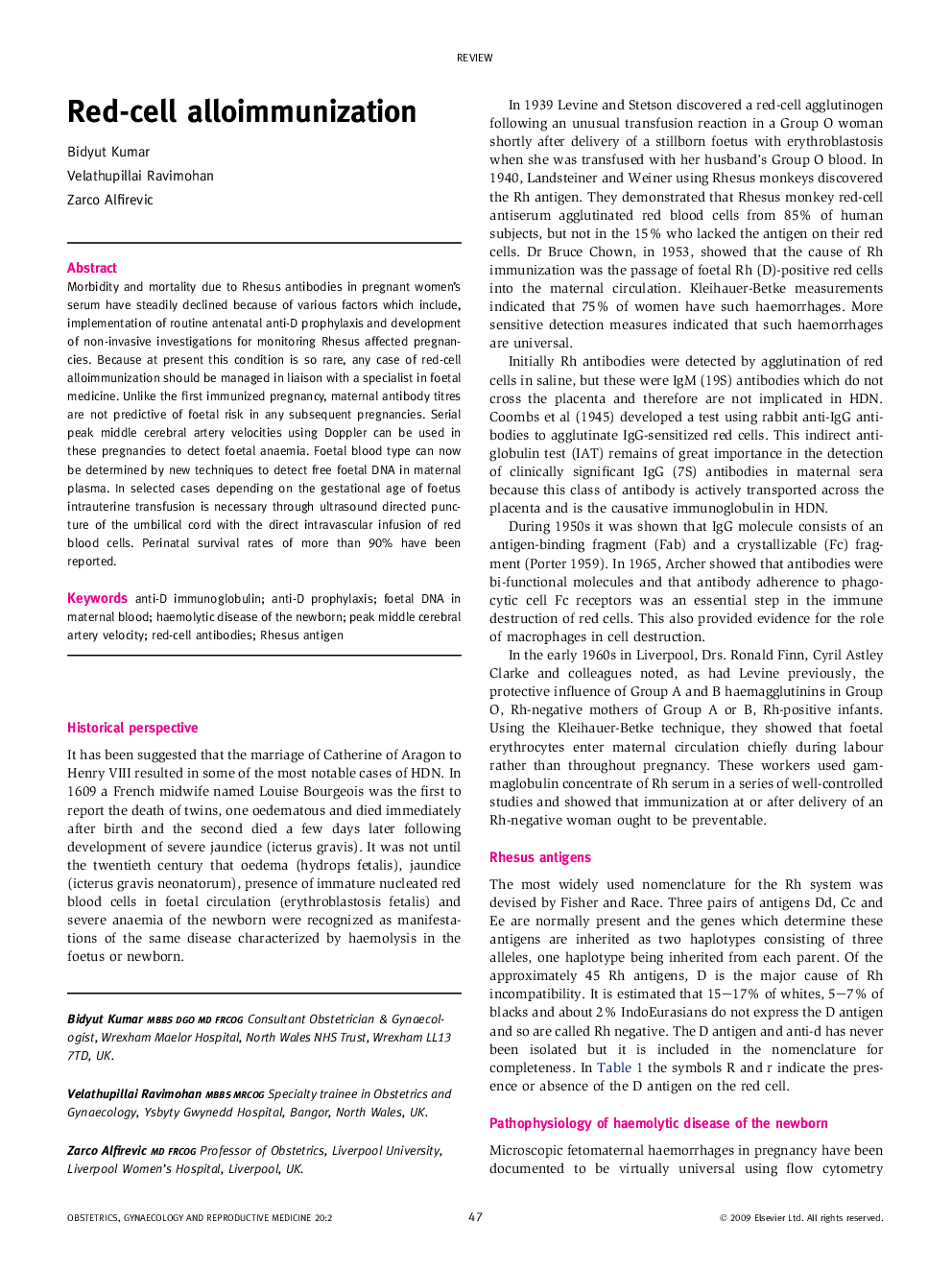| Article ID | Journal | Published Year | Pages | File Type |
|---|---|---|---|---|
| 3967281 | Obstetrics, Gynaecology & Reproductive Medicine | 2010 | 10 Pages |
Morbidity and mortality due to Rhesus antibodies in pregnant women's serum have steadily declined because of various factors which include, implementation of routine antenatal anti-D prophylaxis and development of non-invasive investigations for monitoring Rhesus affected pregnancies. Because at present this condition is so rare, any case of red-cell alloimmunization should be managed in liaison with a specialist in foetal medicine. Unlike the first immunized pregnancy, maternal antibody titres are not predictive of foetal risk in any subsequent pregnancies. Serial peak middle cerebral artery velocities using Doppler can be used in these pregnancies to detect foetal anaemia. Foetal blood type can now be determined by new techniques to detect free foetal DNA in maternal plasma. In selected cases depending on the gestational age of foetus intrauterine transfusion is necessary through ultrasound directed puncture of the umbilical cord with the direct intravascular infusion of red blood cells. Perinatal survival rates of more than 90% have been reported.
